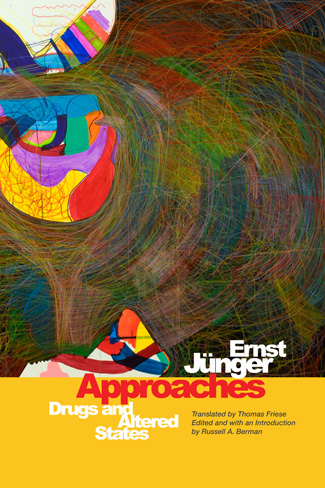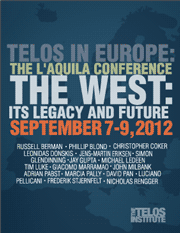By Russell A. Berman · Monday, January 9, 2023  Before Timothy Leary and Baba Ram Dass, before Ken Kesey and Neal Cassady, the Merry Pranksters and their acid test, before the Grateful Dead . . . there was Ernst Jünger, adventurer in mind expansion and psychedelic space. Before Timothy Leary and Baba Ram Dass, before Ken Kesey and Neal Cassady, the Merry Pranksters and their acid test, before the Grateful Dead . . . there was Ernst Jünger, adventurer in mind expansion and psychedelic space.
Jünger stands out in this counterculture company with his thoroughly different background. As a teenager, he ran away from his German home to join the French Foreign Legion. In the First World War he was wounded multiple times and became a highly decorated officer in the Kaiser’s army. He would serve again on the German side in the Second World War—even though he published a famous anti-Hitler novel.
Yet alongside that military career, Jünger spent a lifetime with consciousness-enhancing experiments—hashish, cocaine, and morphine until he worked his way to LSD, psilocybin, and peyote. Jünger invites us to follow him on that mind-blowing path in an autobiography of his life with drugs: Approaches: Drugs and Altered States. This wide-ranging account documents an array of drug experiences, placing them in a richly intellectual context of cultural transformations and the literary history of drug use—Baudelaire, De Quincey, and Huxley—as well as art historical reflections on hallucinatory elements in Van Gogh, cubism, and surrealism. A great intellect meets psychedelics.
Continue reading →
By Telos Press · Thursday, October 27, 2016 “The human receives a particular historical consciousness from his ‘space,’ which is subjected to great historical transformations. The variegated forms of life correspond to equally differentiated spaces. Even within the same time period, the environment of individual humans for the practice of daily life is already defined differently by their different life occupations. An urbanite thinks the world otherwise than does a peasant farmer, a whale-fish hunter has another living space than an opera singer, and to a pilot the world and life appear otherwise not only in other lights but also in other quantities, depths, and horizons.”
—Carl Schmitt, Land and Sea: A World-Historical Meditation
Continue reading →
By Telos Press · Thursday, September 1, 2016 “The human receives a particular historical consciousness from his ‘space,’ which is subjected to great historical transformations. The variegated forms of life correspond to equally differentiated spaces. Even within the same time period, the environment of individual humans for the practice of daily life is already defined differently by their different life occupations. An urbanite thinks the world otherwise than does a peasant farmer, a whale-fish hunter has another living space than an opera singer, and to a pilot the world and life appear otherwise not only in other lights but also in other quantities, depths, and horizons.”
—Carl Schmitt, Land and Sea: A World-Historical Meditation
Continue reading →
By Jay A. Gupta · Friday, July 8, 2016 A recent piece in the Atlantic by Jonathan Merritt declares the “death of moral relativism.” It echoes observations made by other pundits that there seems to have been a shift in cultural attitudes concerning morality. In the United States, subjectivist, relativist, and “postmodernist” stances are said to have been replaced by robust commitments to social justice, tolerance, and inclusion. David Brooks also, for example, discusses the rise of a veritable “shame culture,” particularly evident on American college campuses and social media, ready to condemn and ostracize those who fail to acknowledge the importance of upholding these new, powerful norms of respect and recognition for the marginalized and oppressed. Indeed, the trend is so omnipresent that there has been significant backlash—critics decry the policing efforts of “social justice warriors” and the scourge of “political correctness.”
Continue reading →
By Julio Alcántara · Wednesday, February 27, 2013 The following paper was presented at Telos in Europe: The L’Aquila Conference, held on September 7-9, 2012, in L’Aquila, Italy.
 When we ask, once again, about the sense and origin of the West, we are led to a spatial relation of meaning that humans have with the world and with themselves. The essence of this act is based on the fundamental values of this era, which define the borderlines of the present’s symbolic extension: the human being, as a spatial-being, is also temporal. In fact, spatial differences are not more that multiple fields of temporal states of being. In short, what brings us together today is the polemic signification of the space-time limit of the occidental man and, as such, of the factual possibility of being in the world. When we ask, once again, about the sense and origin of the West, we are led to a spatial relation of meaning that humans have with the world and with themselves. The essence of this act is based on the fundamental values of this era, which define the borderlines of the present’s symbolic extension: the human being, as a spatial-being, is also temporal. In fact, spatial differences are not more that multiple fields of temporal states of being. In short, what brings us together today is the polemic signification of the space-time limit of the occidental man and, as such, of the factual possibility of being in the world.
Continue reading →
|
|
 Before Timothy Leary and Baba Ram Dass, before Ken Kesey and Neal Cassady, the Merry Pranksters and their acid test, before the Grateful Dead . . . there was Ernst Jünger, adventurer in mind expansion and psychedelic space.
Before Timothy Leary and Baba Ram Dass, before Ken Kesey and Neal Cassady, the Merry Pranksters and their acid test, before the Grateful Dead . . . there was Ernst Jünger, adventurer in mind expansion and psychedelic space.  When we ask, once again, about the sense and origin of the West, we are led to a spatial relation of meaning that humans have with the world and with themselves. The essence of this act is based on the fundamental values of this era, which define the borderlines of the present’s symbolic extension: the human being, as a spatial-being, is also temporal. In fact, spatial differences are not more that multiple fields of temporal states of being. In short, what brings us together today is the polemic signification of the space-time limit of the occidental man and, as such, of the factual possibility of being in the world.
When we ask, once again, about the sense and origin of the West, we are led to a spatial relation of meaning that humans have with the world and with themselves. The essence of this act is based on the fundamental values of this era, which define the borderlines of the present’s symbolic extension: the human being, as a spatial-being, is also temporal. In fact, spatial differences are not more that multiple fields of temporal states of being. In short, what brings us together today is the polemic signification of the space-time limit of the occidental man and, as such, of the factual possibility of being in the world. 

